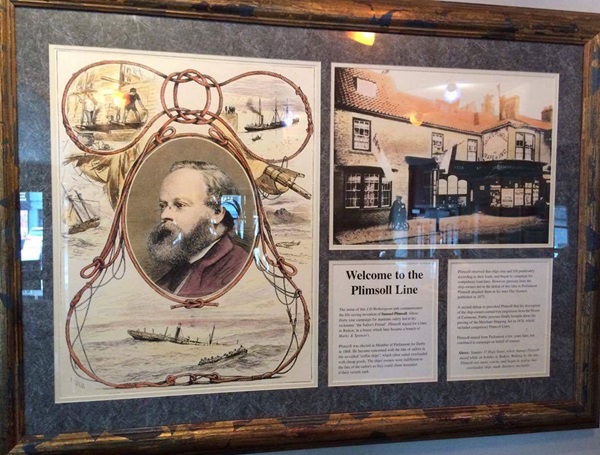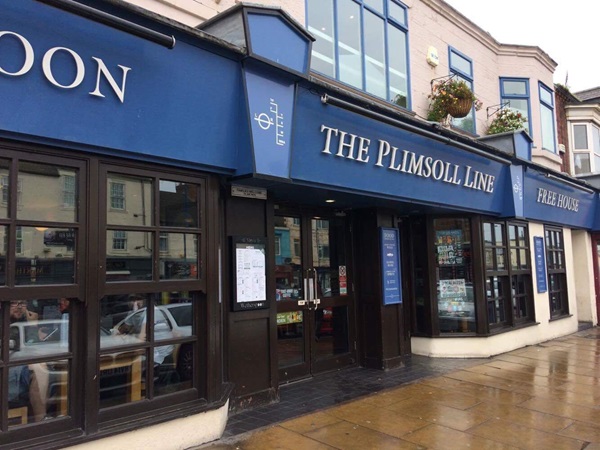The name of this pub recalls the pioneering efforts of Samuel Plimsoll, who lived for a while in High Street. His observations on how boats rose and sank according to their payload led to the Plimsoll line on ships, saving many lives.
Prints and text about The Plimsoll Line.

The text reads: The name of this J D Wetherspoon pub commemorates the life-saving invention of Samuel Plimsoll, whose thirty year campaign for maritime safety led to his nickname “the Sailor’s Friend”. Plimsoll stayed for a time in Redcar, in a house which later became a branch of Marks & Spencer’s.
Plimsoll was elected as Member of Parliament for Derby in 1868. He became concerned with the fate of sailors in the so-called “coffin ships”, which often sailed overloaded with cheap goods. The ships’ owners were indifferent to the fate of the sailor’s as they could claim insurance if their vessels sank.
Plimsoll observed that ships rose and fell predictably according to their loads, and began to campaign for compulsory load-lines. However pressure from the ship-owners led to the defeat of this idea in Parliament. Plimsoll attacked them in his tract Our Seamen, published in 1873.
A second defeat so provoked Plimsoll that his description of the ship-owners earned him suspension from the House of Commons. Public pressure finally brought about the passing of the Merchant Shipping Act in 1876, which included compulsory Plimsoll Lines.
Plimsoll retired from Parliament a few years later, but continued to campaign on behalf of seamen.
Above: Number 37 High Street, where Samuel Plimsoll stayed while on holiday in Redcar. Walking by the sea Plimsoll saw many a wrecks, and began to realise that overload ships made disasters inevitable.
External photograph of the building – main entrance.

If you have information on the history of this pub, then we’d like you to share it with us. Please e-mail all information to: pubhistories@jdwetherspoon.co.uk